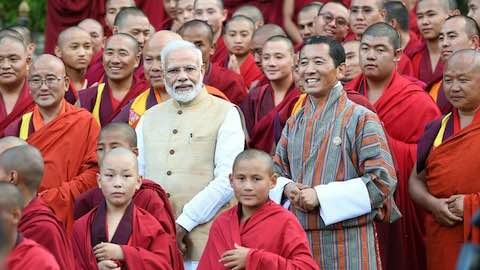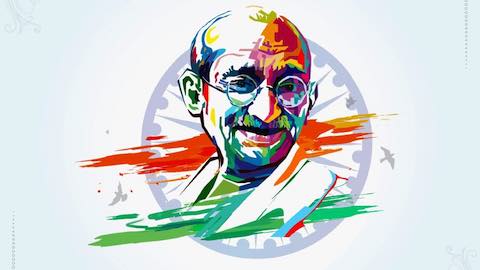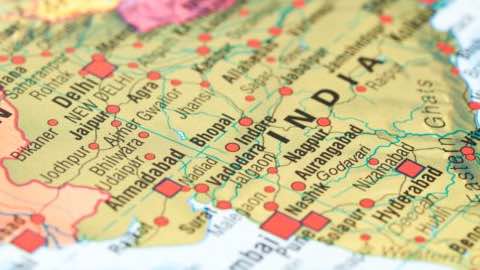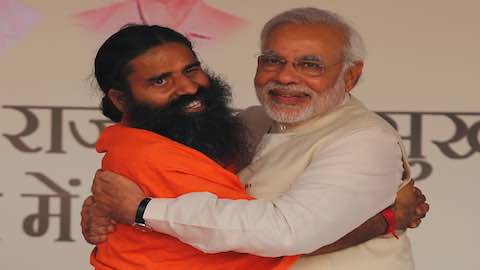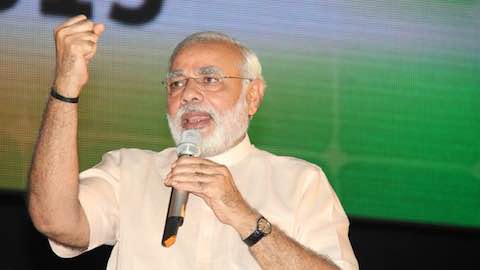- MENU
- HOME
- SEARCH
- WORLD
- MAIN
- AFRICA
- ASIA
- BALKANS
- EUROPE
- LATIN AMERICA
- MIDDLE EAST
- United Kingdom
- United States
- Argentina
- Australia
- Austria
- Benelux
- Brazil
- Canada
- China
- France
- Germany
- Greece
- Hungary
- India
- Indonesia
- Ireland
- Israel
- Italy
- Japan
- Korea
- Mexico
- New Zealand
- Pakistan
- Philippines
- Poland
- Russia
- South Africa
- Spain
- Taiwan
- Turkey
- USA
- BUSINESS
- WEALTH
- STOCKS
- TECH
- HEALTH
- LIFESTYLE
- ENTERTAINMENT
- SPORTS
- RSS
- iHaveNet.com: India Current Events
Countries
Argentina | Australia | Austria | Benelux | Brazil | Canada | China | France | Germany | Greece | Hungary | India | Indonesia | Ireland | Israel | Italy | Japan | Korea | Mexico | New Zealand | Pakistan | Philippines | Poland | Russia | South Africa | Spain | Taiwan | Turkey | United Kingdom | United States
- In Range of North Korean Missiles
- The West's Struggles with the BRICS
- India's Threshold for Nuclear War
- Conflict in Kashmir From the Ground Up
- Is Peace with Pakistan Possible?
- Modi Turns the Tables on China
- South Asian Integration
- A New Global Development Bank in Town
- Challenging the Superpower Status
- India's Neglected Generation
- Challenging the Status Quo
- India's Palaces Under Threat
- India Builds First 'Smart' City
- India Eases Up on Apple
- Jobs Under Threat From Automation
- The Asian Territorial Order
- India's Farmers Discover Flower Power
- India Honors Nepali Woman
- Modi Could Have Global Impact
- Time to Pivot to India
- Book Withdrawal Sparks Criticism
- India's Anti-Muslim Rhetoric
- Is China a Threat to India?
- Nepal Gets a Constitution
- India Blocks 32 Websites
- Shaking Up India's Political Landscape
- India's Middle-Class Dilemma
- Why Uber Is Banned in India
- Girls Retrace Trafficking Routes
- Avoiding the Unthinkable with Pakistan
- India's Theatre of Competition?
- The Global Militarisation Index
- Pakistan Becoming Less Bellicose
- India's Jihadist Movement
- Pakistan's Nuclear Deterrence
- India: Worshippers Cremation Ritual
- India's Hero You've Never Heard Of
- India: Most Populous Country by 2028
- A Sacrifice That Went Unrecognized
- New Delhi's Pollution Worse Than Beijing's
- We Must Not Falter in Polio Battle
-
India should be booming. It has an enormous and youthful workforce and it is predicted to overtake China as the world's most populous nation by 2030. However, the population figures show a quite startling gender imbalance. That is not an accident
-
India has been consumed by a mixture of doubt, revulsion and a desire for vengeance after the rape and murder of a young physiotherapy student on a bus in the Dehli suburb of Munirka as she returned from a trip to the cinema
-
In what is described as the biggest human gathering of the world, 30 million pilgrims took the holy dip at the meeting point of the Ganges and the Yamuna rivers at Kumbh Mela in India
-
Thousands of citizens, youth, several civil society organizations and international bodies like UNICEF, UNAIDS, UNFPA on Sunday joined the Art of Living initiative - 'Volunteer for a better India'
-
Recent clashes between the nuclear-armed neighbors -- India and Pakistan -- are the worst outbreak of violence in Kashmir since a cease-fire took effect in 2003
-
As the world struggles to deal with its two largest foreign-affairs dilemmas, Syria and Iran, resolutely standing in the way are the BRICs
-
The identity of the mystery woman who had marched alongside the Indian contingent during the opening ceremony of the London Olympic Games was finally revealed
-
Central Asia has increasingly dazzled players from near and far, once they've grasped its worth as a crucial source of energy and as a strategic asset. Among these we may count India
-
Northern Bangladesh's mostly Hindu indigenous people are still coming under land-grabbing pressure from the country's predominantly Bengali Muslim population
-
As Pakistan and China reinforce their relationship, questions have arisen around the changing nature of this alliance, the rhetoric that sustains it, and the implications of greater Chinese influence in Pakistan, particularly for the US and India
-
Mutual distrust between the United States and Pakistan in part results from mistakes and misjudgments by both countries that date back to the 1979-89 Russian occupation of Afghanistan. But at its heart is an American strategy that not only runs counter to Pakistan's interests
-
In the wake of its strategic partnership agreement with India, Afghanistan has become an untouchable, even an 'enemy', for many Pakistani commentators
-
In the wake of the November 2008 terrorist attacks in Mumbai, the Indian government took some initial steps toward a more robust counterterrorism policy. Since then, however, a spate of deadly attacks on high value targets have continued, most recently against the High Court premises in New Delhi last month
-
The Inidan PM's speech in the UN General Assembly shows that Indian foreign policy may be rediscovering age old themes which had become subdued in recent years.
-
Critiques of the Indian Army's counterinsurgency practice have overlooked a critical aspect of 'organisational innovation and operational learning' formalised as Op Sadhbhavana
-
A 6.9-magnitude earthquake on 18 September in northeastern India which also caused deaths in parts of Nepal and China, serves as a stark warning to the earthquake-prone region, experts say
-
Karachi is the biggest city in Pakistan. It is the country's commercial hub, financial capital, naval base, and only operational seaport. For the past several months, this city has once again been in the grip of violence
-
Just a day after a powerful blast ripped the entrance of New Delhi's High Court, Kashmir police took three men into custody on the basis of an email believed to have been sent by terrorist group Harkat-ul-Jihad al-Islami
-
Anna Hazare's movement is a populist one, and like all such campaigns offers simplistic solutions to complex problems. Yet there is no doubt that it has galvanized the urban middle class, and if properly channelled could change the trajectory of Indian politics
-
Pakistan's delegation, led by army chief General Pervez Ashfaq Kayani, cleverly changed the subject. He came armed with a fifty-six page book on ways the United States should do more to help Pakistan. Kayani also left his chief spymaster at home, practically eliminating potential for in-depth counterterrorism debates.
-
Until the late 1990s, the United States often ignored India. India's weak and protected economy gave it little influence in global markets, and its nonaligned foreign policy caused periodic tension with Washington. When the United States did concentrate on India, it too often fixated on India's military rivalry with Pakistan. Today, however, India is dynamic and transforming.
-
It's time, I think, to resacralize progress. One way to start is to recognize the rights of native peoples around the world not to be displaced, to see in their determination to remain in reverent connection to a piece of the earth not something quaint and primitive and of value to them alone, but the heart and center of humanity's struggle with itself.
-
Brazil, India and even China will not be able, by themselves, to correct the dysfunctions that produced the global crisis. But it is true that the economic power of these three countries can mitigate its negative consequences
-
Two of the most restive regions continue to influence the strategic calculations of India and Pakistan. And while the projection of soft power by both countries may prove to be a confidence-building measure, its long-term impact upon regional security dynamics remains far from clear
-
Even before forces begin leaving Afghanistan, predator nations are pouring lavish praise and buckets full of cash on Afghan leaders, trying to win access to the nation's vast natural resources
-
The United States is threatening to also sanction India if it doesn't observe U.S. sanctions on Iran
-
Asia is currently in the middle of an unprecedented arms race that is sharpening tensions in the region and competing with efforts to address poverty and growing inequality
-
A steady improvement in India's economy, together with politico-economic changes in its neighborhood, are prompting a re-examination of the national interest in New Delhi
-
Indians do not have much understanding of European crises. If European woes are the reward for fiscal improvidence, Indian governments should have collapsed long ago
-
While India's ability to handle the challenges may be constrained by a slowing economy, it would need to manage them through requisite diplomatic skill and finesse
-
Thousands of ethnic Bengalis living near the Bangladesh-India border have for decades found themselves citizens of one nation but bound within the sovereign territory of another. In recent months they have escalated their campaign for a land swap that will align their citizenship with cartography
-
Australian Prime Minister Julia Gillard has expressed support for allowing the sale of uranium to India in the near future
-
In 2007 China set up its sovereign wealth fund, the China Investment Corporation, with an initial capital fund of $200 billion. Since then, Asia's other emerging economic power -- India -- has been wondering if it should follow. Such a move is ill-advised and that India has more worthy investment opportunities at home
-
If India is able to sustain a comprehensive partnership with Afghanistan in trying circumstances, it would serve as a model for managing its relationships with other neighbors
-
Afghanistan's war enters its second decade with the Taliban emboldened and the United States enfeebled. But the power-play between Pakistan, India and China is also now central to an assessment of what comes next
-
In the wake of the resolution of several contentious issues, India and Bangladesh must cooperate to create a border that not only enhances trade efficiency but is also secure
-
There has been no serious study comparing the political trajectories of India and Pakistan. Those who have tried to fill this gap have attributed India's democracy to Hinduism and Pakistan's autocracy to Islam. Fortunately, Philip Oldenburg, a research scholar at Columbia University, is wise enough not to resort to such sociocultural explanations
-
In the light of the US rebalancing strategy in the Asia-Pacific, the Indian dilemma is how to boost its relationship with the US that can provide an impetus to its economy and defence capability building without antagonising China
-
With better connectivity and implementation of various development projects, the Asian Highway would enable the North-East region to become a business hub of South Asia
-
Unless the Central Asian states, China, India, Iran, Pakistan and Russia jointly contribute towards ensuring stability, Afghanistan is likely to fall to the Taliban again or even break up
-
Despite the unifying power of the monarchy, Thailand remains bedeviled by political tensions and ethnic unrest. These may eventually determine the country's relations with the United States and China
-
China's growing regional presence â€" not to mention its territorial claims â€" is prompting many Southeast Asian states to reinvigorate their ties with the United States
-
India has been reluctant to devise a strategy based on hard power. This helps to explain India's growing consciousness of its soft power - the aspects of Indian society, culture and political values that the world finds attractive
-
India seemed on the brink of becoming the world's next great power. Today, its future appears less certain. Although some have blamed the global economic recession, the real problem is domestic -- namely, the centralized, secretive, and arbitrary political culture that pervades New Delhi
-
While India is increasingly considered an emerging global power, it remains a country bedeviled by internal problems. These will inevitably impact upon New Delhi's ability to project power across a multipolar international system
-
When the Seychelles announced the invitation for China to set up a military presence, Indian, American and Taiwanese policy analysts wrote that this was further evidence of a 'string of pearls' strategy to encircle India with naval bases leased by China
-
2011 witnessed India's firm responses to bilateral issues and China's appreciation of the Indian position, thus providing a positive momentum to India-China relations
-
Asia has one of the largest concentrations globally of aging persons, creating a host of potential challenges
-
The United States issued a cautious reaction to the recent requests by India to social networking sites to take down potentially offensive content
-
Economic growth in India slowed during the third quarter falling to 6.9 percent from 7.7 percent for the previous quarter
-
The death toll at the Bangladesh-India border continues to mount three months after the Indian government instructed its border security forces to stop shooting civilians suspected of being undocumented migrants or a threat to national security
-
Chinese Premier Wen Jiabao and his Indian counterpart Manmohan Singh agreed to establish a regular bilateral strategic economic dialogue mechanism during Wen's visit to India last December, and the first one-day meeting of the China-India Strategic Economic Dialogue was held in Beijing on 26 September
-
The South China Sea issue and China's position on it have become subjects of much deliberation, especially since the ASEAN Regional Forum Meeting at Hanoi last July. It is generally believed that the South China Sea will emerge as the hot-spot of conflict in the coming years. Here's why
-
Since the infliction of unacceptable damage may not deter Pakistan from breaking the nuclear taboo, a 'tit for tat' strategy in case of lower order nuclear use is worth considering
-
Adopting constitutional means and respecting the political process is the only way to achieve sustainable change in Indian politics. The goal of eradicating corruption may be worthy, but Anna Hazare's means are blatantly wrong and ultimately dangerous. It is time this message is delivered to him, loud and clear
-
IBSA, comprised of India, Brazil, and South Africa, has improved trade and cooperation among the countries since 2003 IBSA is notable for its South-South cooperation and anti-hegemonic rhetoric However it is not necessarily an easy model for other Southern nations
-
Osama bin Laden's death during an American raid on his compound in Abottabad, Pakistan, not far from Pakistan's premier military academy, has pushed U.S.-Pakistan relations to a 'new low,' says Hassan Abbas. Abbas says this is typical of the recent rocky relationship the two countries, which need each other but also undercut each other at crucial times
-
There is no longer any question: wealth and power are moving from the North and the West to the East and the South, and the old order dominated by the United States and Europe is giving way to one increasingly shared with non-Western rising states. But if the great wheel of power is turning, what kind of global political order will emerge in the aftermath?
-
The death of Osama bin Laden is unlikely to have much of a tactical impact on the wider jihadist movement, but the killing does carry significant implications for U.S. foreign policy moving forward
-
Much has been made of U.S. President Barack Obama's pledge to support India's push for a permanent seat on the United Nations Security Council, which was offered during his November trip to India, but the real story from his visit was its implications for bilateral military trade.
-
China and India stopped being part of what was called the third world when the Communist world disappeared in a shattering of global illusions in 1989. Since then there has been a search to find a new King of the Global Hill. The United States rejoiced for a few years in being the sole superpower, considering it an opportunity to remake the world according to its own advantage.
-
India and China have long maintained their economic growth will suffer if they accept binding emission targets under an international agreement on climate change. Instead, they have called for mitigation commitments by the developed world and financial support from rich countries to help developing countries adapt to climate change.
-
In 2003, a report authored by Goldman Sachs economists popularized the term BRICs -- Brazil, Russia, India and China -- to describe a whole new category of emerging-market powerhouse. The report argued that with sound political leadership and relative international stability, the BRIC economies would together outpace the original G6 industrialized nations in dollar terms by 2040 -- a fundamental shift in the global balance of power. Since then, these four countries have assumed ever-greater importance in the international investment community's collective imagination.
-
The Pakistani leadership has apparently come to the point where it realises that for the survival of the country and its structures, it must buy peace for the present with India
-
India's growing economy needs a steady diet of Iran petroleum and resents pressure to join the sanctions regime. On the other hand, India isn't anxious to see another Muslim nuclear power emerge
-
India and Japan have had their historical ups and downs. Now, wariness of China and common interests in the Asia-Pacific region are bringing Japan and India together
-
Will Asia's growing economic power be accompanied by a similar rise in its military power? This is a key question for today's policy-makers searching for signs of a shift in the world's military balance
-
A major strategic challenge for the United States in the coming decades will be integrating emerging powers into international institutions. The dramatic growth of Brazil, China, and India -- and the emergence of middle-tier economies such as Indonesia and Turkey -- is transforming the geopolitical landscape and testing the institutional foundations of the post-World War II world order
-
Fragrant curry, simmering dal, colorful tandoori, spicy korma -- the aromatic, delicious foods of India, with their incredible range of spices, flavors, foods, colors, textures and ingredients, speak for themselves. Looking beyond taste, however, how does Indian food rate in healthiness?
-
In the aftermath of the global financial crisis, the economies of North America and Europe remain fragile while those of Asia continue to grow. This is especially true in the cases of China and India, which both boast near double-digit rates of growth and have therefore inspired confidence around the region. But too many commentators discuss China and India with breathless admiration
-
A new government report lists 22 nations that maintain significant business relationships with Iran, despite new United Nations sanctions and even more restrictive laws enacted in Europe and the United States. But one nation dominates the list -- India allows more companies to do business with Iran than any other
-
The rapid economic development of Asia since World War II has forever altered the global balance of power. These countries recognize the importance of an educated work force to economic growth, and they understand that investing in research makes their economies more innovative and competitive.
-
For nearly a year, an unmanageable coalition government in India has obstructed the ruling Congress Party's policy agenda and brought the country's economic reform process to a grinding halt. Now that an impressive electoral triumph in national parliamentary elections held in April and May has allowed the party to shed unreliable allies, can its leaders move the country in a more market-friendly direction. There are grounds for both caution and optimism
-
Nandan Nilekani's book, Imagining India, charts how India arrived at the potentially transformative moment it has reached today and describes the gargantuan challenges the country will have to overcome if it is to fulfill that potential
-
Competition between India and China suggests that the Indian Ocean is where global struggles will play out in the twenty-first century. The old borders of the Cold War map are crumbling fast, and Asia is becoming a more integrated unit, from the Middle East to the Pacific.
© iHaveNet.com
